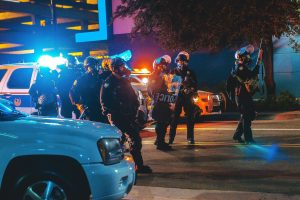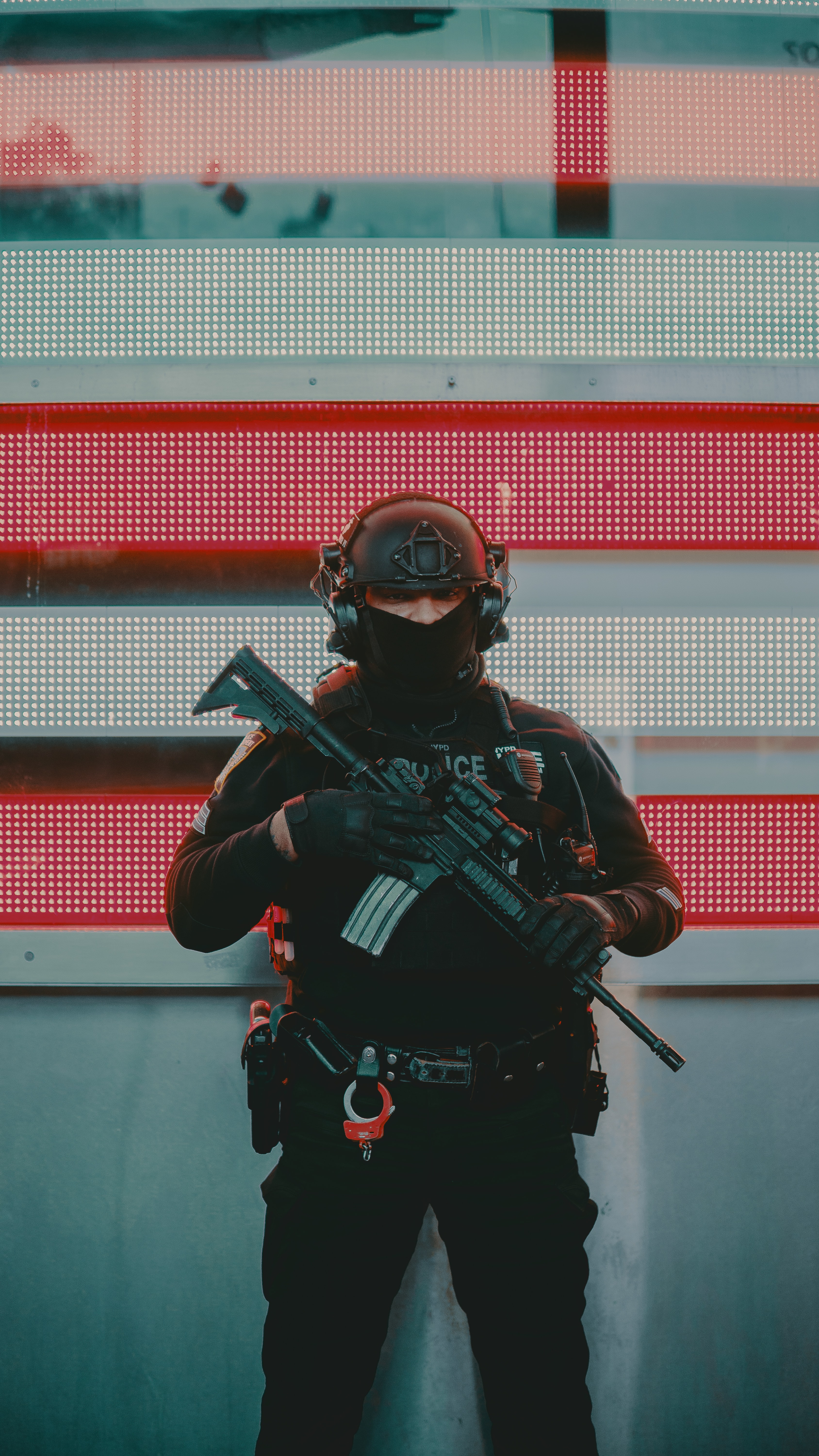Plaintiffs in excessive force case want officers to be held accountable.
A Marion County, Indiana, grand jury indicted two Indianapolis Metropolitan Police Department (IMPD) officers roughly six months ago with felony charges after footage of two women, Ivoré Westfield and Rachel Harding, out past curfew and being “brutally” apprehended, went viral. The curfew was set by Mayor Joe Hogsett following two consecutive nights of protesting and violence.
“I’ve never seen police act like that ever,” 39-year-old Rachel Harding, a white woman shoved to the ground by officers and later arrested, said of the events, adding, “Things were boarded up and things were destroyed, and I felt like this was a memorable time in our history, and I wanted to go visually be a part of it. I wanted to see it.”
Harding took her camera downtown just before the curfew began and met up with Ivoré Westfield, a stranger at the time, who had decided to do the same. Just minutes after the curfew took effect, officers arrested the two women.

“Without provocation, without notice, without any warning – phrase it how you want – these police officers attacked, and there’s no other word for it, they attacked these women and they attacked them with such viciousness and such violence that it’s hard to watch,” said Terrance Kinnard, the women’s attorney.
Now it looks like the Indiana Harding-Westfield excessive force lawsuit may not even make it to trial.
“I would say that the bulk of [these cases] are either settled or dismissed,” explained Anne Mullin O’Connor, the City of Indianapolis’ attorney with Office of Corporation Counsel. “We are – I don’t want to say pressed into settlement, but everyone is asked by the courts to consider mediating and settling the dispute early on…We don’t always settle because we think we did anything wrong; it’s just a matter of finance. We are stewards of the taxpayer funds, so we take very seriously the analysis we do early on.”
When cases get settled, in Indiana and elsewhere, there seems to be little in the way of reprimand, however, and the actions of the officers, therefore, simply continue.
“99.9% of the time the cop goes back, or the officer – I don’t mean to be derogatory – the officer goes back to his employment,” Kinnard explained. “There is a settlement of some amount or an award by a court of some amount. The officer goes back to his job. What would be the deterrent?”
If the number of cases that made it to trial went up and there were less being settled, this could mean less police protection, in general, according to IMPD Chief Randal Taylor. He said, “Our officers are charged with protecting the citizens of this city. They’re put in very difficult situations from time to time – sometimes on a regular basis, really, so it would probably make an impact on our ability to hire and retain officers.”
And yet, Harding and Westfield want law enforcement involved in their case to be held accountable. Asked if a settlement would mean justice, Harding said, “It’s not about a monetary number. It’s not about infamy like, ‘I’m here’…I show up just because I need something to change. And I feel like that’s important.”


Join the conversation!